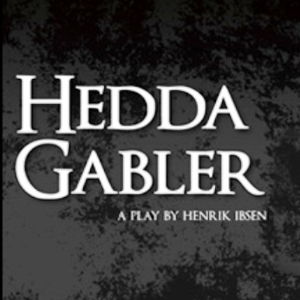
Overview
Synopsis
Hedda Gabler focusses on the frustrated existence of its title character, exploring core issues of power, control, and social expectation. Bored and restricted by her middle-class environment, Hedda plays out her own fantasies and psychological games with those nearest to her to an ultimately costly end. The play opens as Hedda and her academic husband, Georges Tesman, return from honeymoon and immediately it is clear that Hedda is neither happy nor satisfied in her new role as Tesman’s wife. She is, however, pregnant. Soon after their return, Hedda is reacquainted with an old school friend, Mrs. Elvsted, and the brilliant but wayward writer Eilert Loevborg. It becomes clear that Hedda has personal history with Loevborg and it is at this point that her machinations begin. Hedda finds pleasure in manipulating Loevborg into drinking again and thus ruining both his career and his relationship with Mrs. Elvsted. Ultimately she persuades the conflicted writer to take his own life. However, Hedda finds herself under the control of their imposing friend, Judge Brack, who makes it clear that he knows she gave Loevborg the gun. He has the power to socially destroy her if he so wished. Trapped under his control, Hedda retreats in to the rear room and shoots herself.
Show Information
Context
Henrik Ibsen wrote Hedda Gabler in Munich in 1890, by which point he was firmly established as one of Europe’s leading contemporary playwrights. However the play‘s tragi-comedic depiction of the complex psychological state of a woman trapped in a dull, middle-class marriage baffled audiences and was universally condemned when it was first produced in Germany and Scandinavia. The play was produced in London for the first time in April 1891, with American actress Elizabeth Robins in the lead
to read the context for Hedda Gabler and to unlock other amazing theatre resources!Plot
Act One
When the play opens, George Tesman and his wife, Hedda, have returned to their new villa after a six-month honeymoon. His aunt, Juliana Tesman (whom he calls Aunt Juju), has called to pay an early morning visit. She meets Bertha the maid first. It is clear that Bertha used to be Miss Tesman’s maid but has now come to take care of George and his family. The two women discuss the differing tastes and domestic expectations of George’s new wife. George welcomes his aunt affectionately,
to read the plot for Hedda Gabler and to unlock other amazing theatre resources!Characters
| Name | Part Size | Gender | Vocal Part |
|---|---|---|---|
|
Lead |
Female |
Spoken |
|
|
Supporting |
Male |
Spoken |
|
|
Supporting |
Female |
Spoken |
|
|
Supporting |
Male |
Spoken |
|
|
Supporting |
Male |
Spoken |
|
|
Featured |
Female |
Spoken |
|
|
Featured |
Female |
Spoken |
Songs
A song with an asterisk (*) before the title indicates a dance number; a character listed in a song with an asterisk (*) by the character's name indicates that the character exclusively serves as a dancer in this song, which is sung by other characters.
Monologues
Scenes
Key Terms
A written statement declaring the artistic or political intentions of a theatrical movement or company.
Naturalism is a theatrical style that seeks to depict life with accuracy, focusing on everyday speech, behavior, and settings. It often highlights ordinary people in realistic environments, emphasizing authenticity over theatricality. Emerging in the late 19th century, naturalism remains influential in contemporary drama.
A theatrical movement that strives to depict everyday life and authentic behavior on stage. It often focuses on domestic settings and psychological depth.
A philosophical underpinning of Naturalism in theatre, asserting that behavior is shaped by heredity and environment.
A neoclassical principle dictating unity of time, place, and action, influencing dramatic structure in theatre history.
A Tragedy is a form of drama that explores human suffering, conflict, and loss, often leading to a disastrous or fatal conclusion. Traditionally, the main character experiences downfall due to a personal flaw, poor judgment, or forces beyond their control. Tragedy aims to evoke pity and fear in the audience, leading to reflection and emotional release.
The appearance of being true or real in a dramatic context, central to Realist and Naturalist traditions.
Videos
Quizzes
Themes, Symbols & Motifs
Sorry! We do not currently have learning modules for this guide.
Quote Analysis
Sorry! We do not currently have learning modules for this guide.
